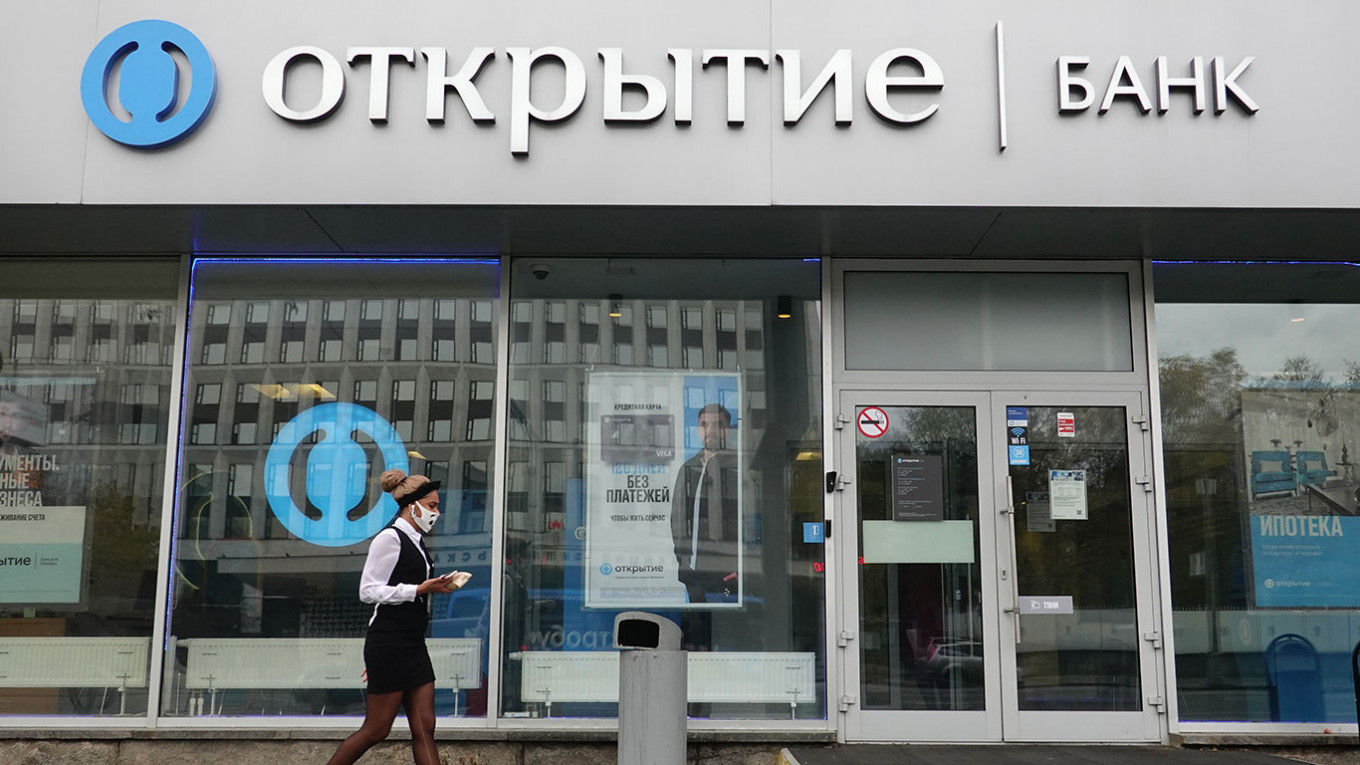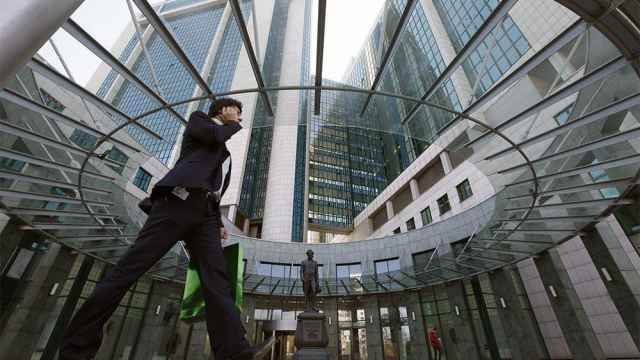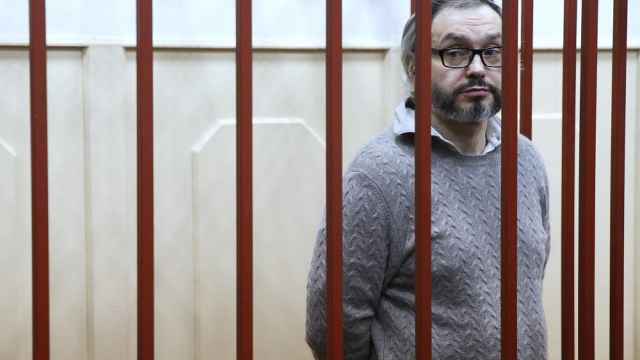Russia’s Central Bank has accelerated preparations to sell its stake in the bailed-out Otkritie Bank and could relinquish control of the lender before the end of 2021.
The regulator announced Tuesday it was inviting interested strategic investors to begin the process of due diligence and start prepping potential bids to take over the lender, which can be formally submitted in October.
The Central Bank previously said it would look to offload a stake in the bank next year, possibly through an initial public offering (IPO). Now the regulator says it will consider selling a controlling stake to a large strategic investor by the end of the year, depending on the level of market interest.
It also said it could spin off Otkritie’s insurance or pensions arms to accommodate a quicker sale — a move previously deemed off the table by Otkritie President Mikhail Zadornov.
In a statement published shortly after the Central Bank’s announcement, Otkritie said it had opened a system to receive statements of interest from investors specifically wishing to purchase its Rosgosstrakh insurance division. Bids must by placed by Sept. 9, the bank said. Rosgosstrakh has previously been linked to Italy’s largest insurer Generali, which is lining up a potential two billion-euro expansion into Russia.
Otkritie was bailed out in 2017 when it was on the verge of bankruptcy following a two-year financial and banking crisis after the annexation of Crimea, imposition of sanctions and fall in oil prices. Russian authorities have alleged foul play and are seeking the extradition of the bank’s co-founder Boris Mints on charges of embezzling $460 million just before the lender almost collapsed. At the time of its bailout, Otkritie was Russia’s largest private financial institution.
If the Central Bank is unable to find a suitable strategic investor to take a 50%-plus-one-share stake in the lender, it is expected to proceed with a public share sale on the stock market.
Russia’s financial sector has been hit hard by successive banking crises and Western sanctions. But under governor Elvira Nabiulina, the regulator has embarked on an $80-billion mission to clean up the industry and it believes Russia’s banks are stronger, more stable and transparent than ever before. The sector was reporting record profits before the coronavirus pandemic and has recovered strongly off the back of last year, as the share of non-performing loans continues to come in far below the levels of cash set aside for loss provisions.
The offloading of Otkritie will further reduce the Central Bank’s role as a direct owner of assets in Russia’s banking sector — a controversial position given its main function as regulator. Earlier this year, an accounting maneuver saw the Central Bank transfer its stake in Russia’s largest lender Sberbank, to the Finance Ministry.
A Message from The Moscow Times:
Dear readers,
We are facing unprecedented challenges. Russia's Prosecutor General's Office has designated The Moscow Times as an "undesirable" organization, criminalizing our work and putting our staff at risk of prosecution. This follows our earlier unjust labeling as a "foreign agent."
These actions are direct attempts to silence independent journalism in Russia. The authorities claim our work "discredits the decisions of the Russian leadership." We see things differently: we strive to provide accurate, unbiased reporting on Russia.
We, the journalists of The Moscow Times, refuse to be silenced. But to continue our work, we need your help.
Your support, no matter how small, makes a world of difference. If you can, please support us monthly starting from just $2. It's quick to set up, and every contribution makes a significant impact.
By supporting The Moscow Times, you're defending open, independent journalism in the face of repression. Thank you for standing with us.
Remind me later.






